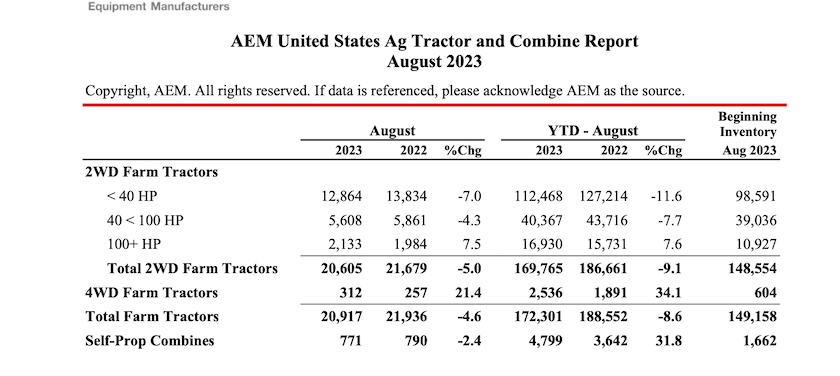Nearly Two Years After Worker Strike, John Deere Lays Off 225 Workers From Harvester Works Location Indefinitely

Nearly two years after close to 10,000 John Deere workers went on strike over a labor dispute, the company is laying off more than 200 jobs from its Harvester Works location. John Deere says the round of 'indefinite layoffs' will happen in October.
John Deere notified workers on Wednesday about a decision to lay off 225 people from the John Deere Harvester Works facility in East Moline.
In a press release, John Deere said "Although John Deere has hired hundreds of employees in the Quad Cities in recent years, the company has consistently stated that each Deere factory balances the size of its production workforce with the needs of the individual factory to optimize the workforce at each facility."
In the latest Association of Equipment Manufacturers (AEM) flash report, combine sales are still on an impressive run so for this year across the industry. The report shows sales are down 2.4% in August, but when you look at the year to date totals, combine sales are up 31.8% compared to 2022.

2021 Worker Strike
On October 14, 2021, nearly 10,000 John Deere workers went on strike. While it was feared the strike could last for months, in November of 2021, members of the United Auto Workers (UAW) Union approved a new six-year deal, which included:
- $8,400 signing bonus.
- 20% increase in wages over the lifetime of the contract, with 10% in 2021.
- Return of cost of living adjustments.
- Enhanced retirement options.
- Enhanced CIPP performance benefits.
Layoffs at Nation's Automakers
Meanwhile, a labor dispute playing out with the nation's largest truck and car manufacturers is already causing layoffs. UAW-represented workers have walked out of assembly plants in Wentzville, Missouri and Toledo, Ohio. Workers also went on strike at a Ford plant in Wayne, Michigan. Those strikes started Sept. 15, and happened after the automakers failed to reach a deal on a new contract with the union.
Those factories, which supply parts to other locations, are now causing layoffs. On Wednesday, GM said it is laying off nearly 2,000 workers at its assembly plant in Kansas due to a shortage of parks caused by the strike.
Detroit automakers are becoming more vocal about rejecting the UAW's new contract demands, which include:
- A 40% pay hike.
- A 32-hour work week.
- An end to a tiered wage structure that pays newer workers less.
"The fundamental reality is that the UAW's demands can be described in one word — untenable," General Motors President Mark Reuss said in an opinion piece published in the Detroit Free Press on Wednesday. "As the past has clearly shown, nobody wins in a strike. We have delivered a record offer. That is a fact."
Farm Journal spoke to two Ford plant employees, who asked to remain anonymous. They say it's been more than a decade since they've had a raise. As automakers went through financial trouble, workers gave up cost of living increases and other raises. As the automakers continue to raise vehicle prices and post impressive profits, those employees say a raise is long overdue.







